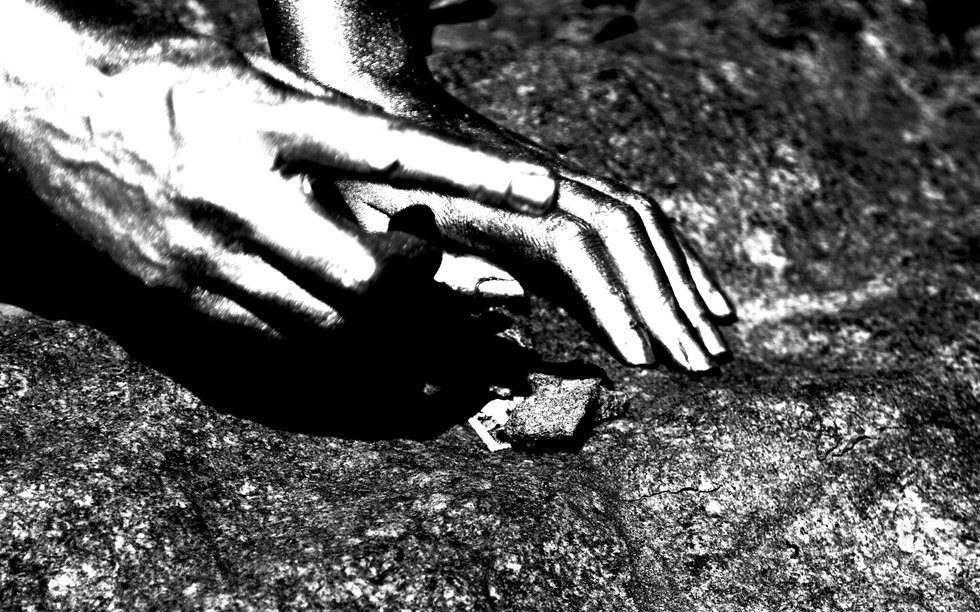Gasworks, London, United Kingdom
24 Jan 2019 - 24 Mar 2019

Libita Clayton, Untitled, 2018. Photograph. Courtesy of the artist and Brain the Tool.
Gasworks presents Quantum Ghost, the first UK solo exhibition and a major commission by Bristol-based artist Libita Clayton.
Comprising of an immersive sound installation, a series of large-scale photograms and a programme of live performances, Quantum Ghost maps a journey through archives and territories related to the artist’s heritage. Clayton digs deep into personal documents and oral histories tracing her family tree across different mining regions and colonial geographies of extraction. In particular, she reconstructs the paper trail left by her late father, a member of SWAPO (South West Africa People’s Organisation, the political mass movement that fought for Namibia’s liberation from Apartheid South Africa), who went into exile in the 1980’s and studied mining engineering in Cornwall.
Grounded in these sites of memory and testimony, Clayton’s research aims to unearth the subterranean histories and political undercurrents connecting the mining regions of Namibia and Cornwall. From mined ores and sedimentary rocks to precious metals and rare earths, her work examines the raw materials at the core of capitalist extraction, revealing how the echoes of colonialism and diasporic migration reverberate through the deep-time of geology and across the ruined landscapes of the Anthropocene.
This project began with Clayton’s residency at Gasworks during the summer of 2018, followed by research trips to Cornwall, Namibia and South Africa, where she collected sound recordings in places such as the Cornish tin mines and iron-ore heaps in Penwith (not far from where the artist grew up), and the pink salt lakes and uranium mines near Walvis Bay, Namibia.
Samples from these field recordings form part of a multi-channel audio installation, created through a shared process of collecting and looping, collaging and re-assembling a sonic archive. The work was developed in collaboration with artists and musicians Demelza Toy Toy, Jol Thomson and Hannah Catherine Jones, also featuring contributions from Perivi Katjavivi and Memory Biwa.
Conceived as an exercise in sound archaeology, Clayton summons a polyphony of ancestral voices in the form of a lament while exploring the unheard sounds of a mineral landscape that is haunted by the ghosts of colonialism and extraction. The audio work is embedded into a tunnel-like structure made from cob, a mixture of clay, sand and straw. Riffing on subterranean materials and textures, the gateway into the audio installation lies somewhere between a mine shaft and an ear canal.
At the entrance of the exhibition, a series of dimly-lit photographic prints hold ghostly images that speak of visions of other worlds. Produced by pressing mined minerals and personal objects directly onto a light-sensitive paper, these photograms are reminiscent of cosmic landscapes and dark matter. In them, the progressive unfolding of history as perceived from a human perspective is broken into kaleidoscopic visions that range from the geological time-scale of mineralisation to the light-speed of the Internet.
Quantum Ghost is commissioned and produced by Gasworks. Libita Clayton’s exhibition is part of the Freelands Artist Programme, which offers artists based outside London a three-month residency and a solo exhibition at Gasworks. In late 2019 the work will travel to Spike Island. The exhibition is also generously supported by Arts Council England.